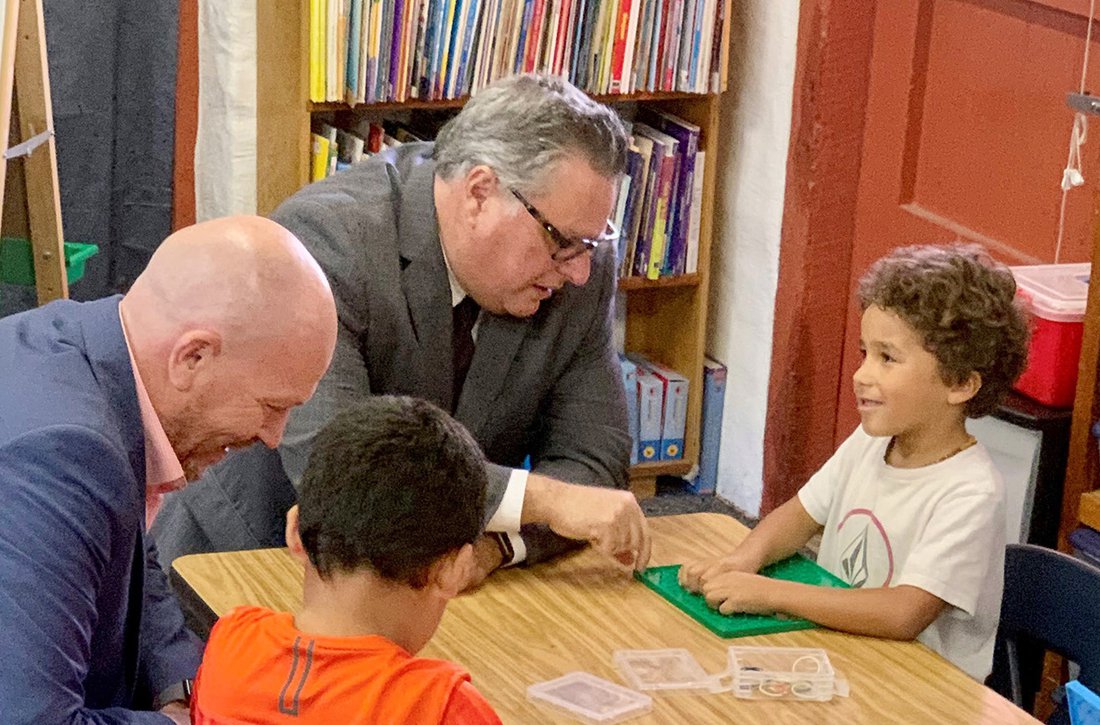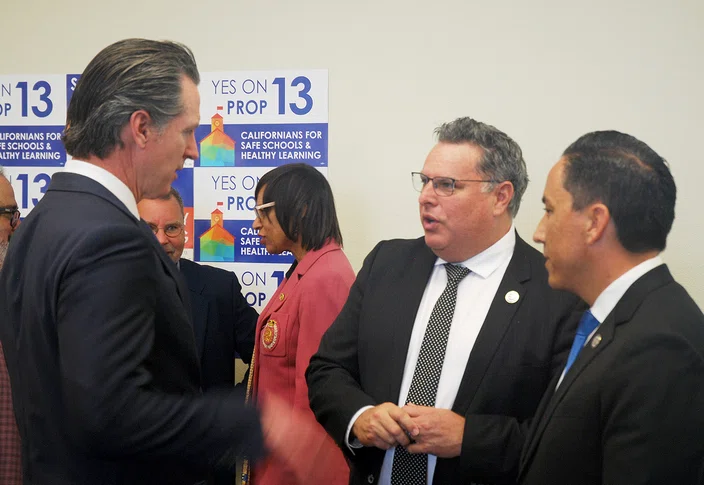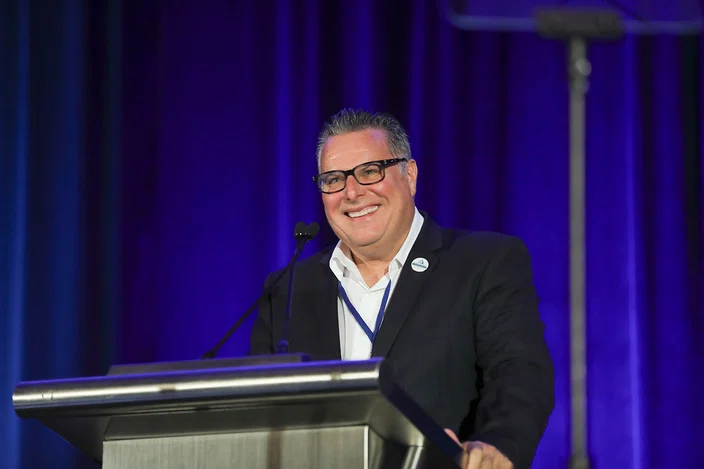
Paul Gothold’s ability to create climates where all voices are valued and make decisions based on student need and not political discourse have earned him this year’s Valuing Diversity Award.
Gothold values all voices to improve education
November 11, 2024

Name: Paul Gothold
Award: Valuing Diversity Award
Title: Superintendent, San Diego COE
Paul Gothold wasn’t supposed to be in education. It was 1991 and the business major took a subbing job working with adjudicated youth for the Los Angeles County Office of Education.
Then he fell in love with the students — kids who could be his neighbors, his siblings. They may have had some missteps, but they still had bright futures in front of them.
“I just never understood why we sorted, labeled and packaged kids,” Gothold said. “I will tell you that that experience shaped who I am as a leader and I deeply honor and appreciate that role, and probably learned more from my kids than they did from me.”
Thirty-three years later, Gothold is still committed to his belief that every student has the right to a quality education with all options available to them after they graduate. His ability to create climates where all voices are valued and make decisions based on student need and not political discourse have earned him this year’s Valuing Diversity Award.
After working as a site administrator and later as superintendent of Lynwood USD, Gothold became superintendent of the San Diego County Office of Education in 2017.
In 2021, he got a call over the weekend from officials at the Department of Homeland Security and U.S. Health and Human Services asking if he would create an educational program for 1,500 unaccompanied migrant children arriving in San Diego. They had a week to make it happen.
By Monday morning, Gothold had assembled a team including teachers in the county office’s migrant education program, technology administrators, a principal and curriculum experts. They pulled together desks, books and computers and made a school for students who had experienced unthinkable trauma along their journeys from Guatemala, Nicaragua and beyond. They called the program Futuro Brillante (Bright Future).
“We just wrapped our kids with love and care,” he said. “[The students] said that school was their favorite part of the day. It gave them a safe space. And what we stand for is that every kid feels like they’re connected and they belong. And you saw it manifest itself in this program.”
As part of the county office’s commitment to socially conscious leadership, Gothold has been intentional about seeking feedback from underserved student groups, recognizing that school hasn’t always worked for them. Through his Superintendents Advisory Committee, he elevated the voices of community members and students and made space for tough conversations.
“It’s heart-centered listening. I call it submissive respect,” he said. “We didn’t just do this to listen, we did it with purpose to build some strategies around helping our schools and districts design differently based on what the needs of our community were — according to them and not us.”
That input is incorporated into the county office’s Equity Blueprint for Action, which was adopted to specifically address the needs of African American, Native American and Latinx students. It serves as a guide to the community- and research-informed practices that can improve equitable outcomes for historically marginalized students. But it’s also a tool, helping districts integrate these recommendations into their LCAPs.
As schools have become battlegrounds for a variety of political fights, Gothold has provided training and leadership locally and across the state on how to respond. He says school leaders should have non-negotiables when it comes to serving every student, but they should also lean into conflict.
“I would coach our folks by saying, ‘Win the relationship, not the argument,’” he said. “Once we have an opportunity to understand where people are coming from, validate their concern, whether we agree with it or not, and work from there, there’s more opportunity.”
He also suggests letting go of terms that have become “political lightning rods.”
“I’m less concerned about what we call it as opposed to what we do,” Gothold said. “If we just start with the data and say, ‘Is this, OK?’ — I don’t know anyone of any political party that wants to keep kids in foster care or homeless. That’s a starting place.”
Having retired this past summer, Gothold has a number of accomplishments to look back on. During the seven years he led Lynwood USD, graduation rates went from 58 percent to almost 90 percent with all historically underserved subgroups outperforming state averages. At SDCOE, he partnered with the National College Resources Foundation to host the annual San Diego Black College Expo, where students have the opportunity to talk to representatives from a variety of historically black colleges and universities. Some are accepted for enrollment on the spot.
“Everything that feeds my soul is what our kids are doing,” he said. “I’m so deeply proud of what our kids do, day in and day out. That’s my driver. I’m there to serve them and make sure they have best experience possible.”

Paul Gothold with Gov. Gavin Newsom and San Diego Mayor Todd Gloria.

As part of the county office’s commitment to socially conscious leadership, Paul Gothold has been intentional about seeking feedback from underserved student groups, recognizing that school hasn’t always worked for them.




